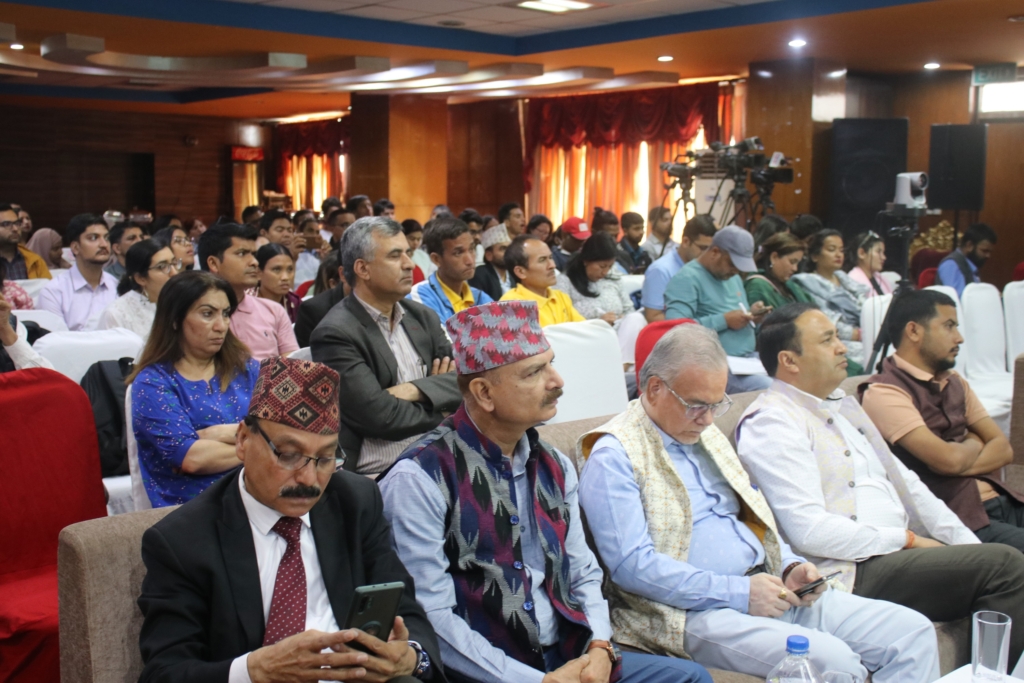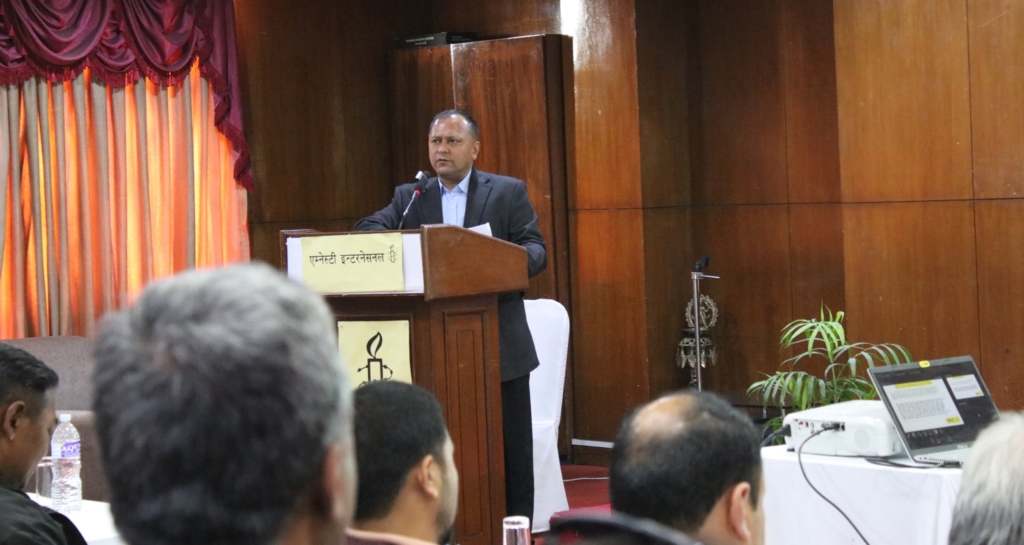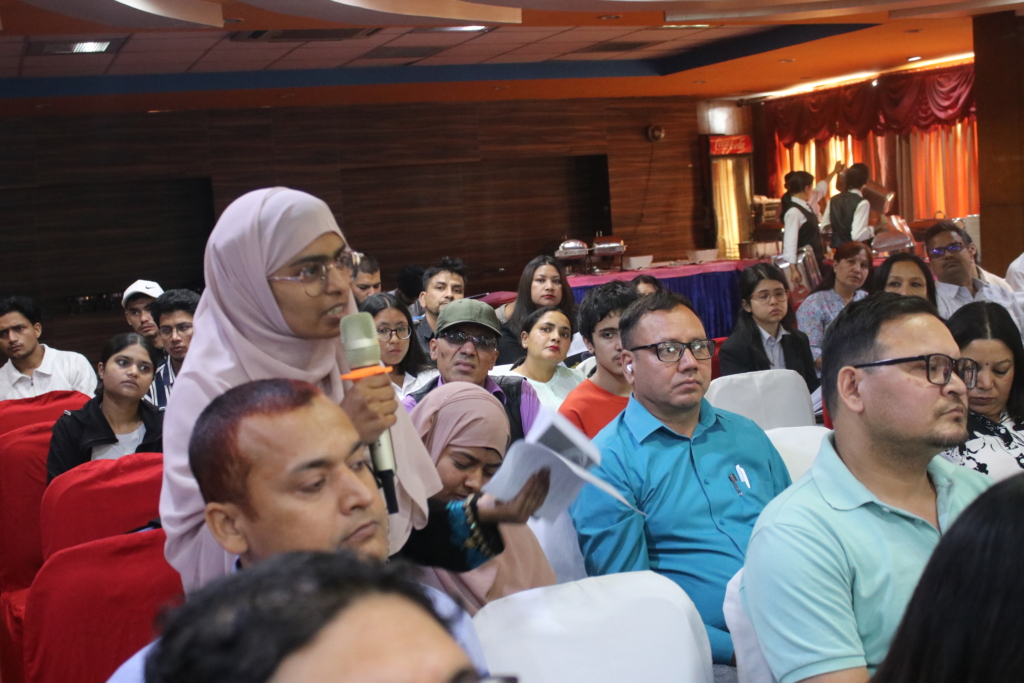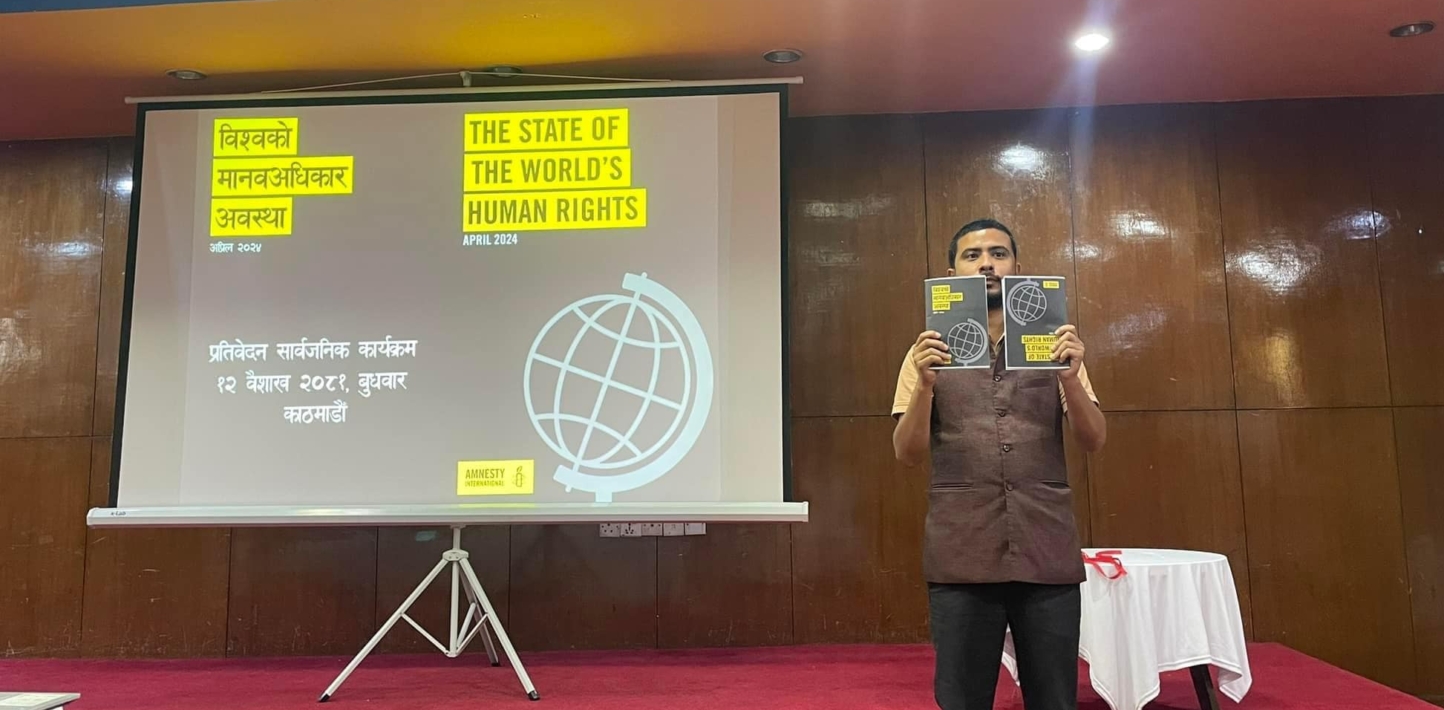Amnesty International Nepal locally launched Amnesty International’s global annual human rights report entitled ‘The State of the World’s Human Rights’ on 24 April 2024 in Kathmandu amidst a gathering of media persons, activists and Civil Society representatives. The report, which assesses the human rights situation in 155 countries, was launched simultaneously on 24 April across the globe by various local Sections and offices of the organization.

The local launch in Kathmandu was attended by over 120 participants including journalists from various media outlets, human rights defenders, campaigners, representatives from civil society organizations, international organizations.
The report was unveiled by the Chair of Amnesty International Nepal, Bipin Budhathoki. The report delves into key human rights issues, themes and broader trends observed globally and within different regions and countries including in Nepal in 2023 and provides recommendations for governments and others.

Amnesty International Nepal’s Director Nirajan Thapaliya made a presentation on the key highlights of the report elaborating the four critical issues that underscore ongoing human rights challenges worldwide as outlined in the report. These issues include the treatment of civilians as expendable in armed conflict, the growing backlash against gender justice, the disproportionate impact of economic crises, climate change, and environmental degradation on marginalized communities, and the threats posed by new and existing technologies including generative AI. Thapaliya also shed light on Nepal’s human rights situation as documented in the report that included, among others, the continuing use of unnecessary and excessive force against protesters by security forces, restrictions on freedom of expression, and peaceful assembly, failure to serve truth, justice and reparations to the victims of conflict related human rights violations, continued practice of torture and ill treatment by security forces with impunity, persistent gender and caste-based discrimination and abusive recruitment practices faced by migrant workers. He also mentioned that there was a notable milestone with the registration of marriage for a same sex couple in 2023.

The presentation was followed by question and answer session in which participants raised various queries on the issues raised in the report. Giving his closing remarks Amnesty Nepal Chair Budhathoki thanked all the participants, especially the journalists. He expressed frustration over the lack of diligent and committed initiatives from the political leaders to deliver justice to the victims of armed conflict as there seemingly was double standards and a vast chasm between what the political leaders say and do when they are in power and out of power. He also expressed concern over the government’s increasing tendency to tighten civic spaces, including the autonomous functioning of civil society organizations. He also regretted the deepening culture of impunity and the weakening of public institutions in Nepal.


